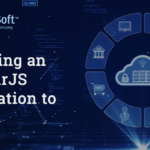

As the concept of the metaverse continues to evolve from a futuristic idea into a practical reality, businesses are scrambling to secure their place in this vast new digital landscape. The metaverse promises to revolutionize how we interact, work, socialize, and conduct business. With its potential to create immersive, interactive experiences, the metaverse presents not only unprecedented opportunities but also unique challenges for organizations. One of the most pressing challenges is staffing — finding the right talent with the skills required to thrive in this rapidly evolving space.
In this blog, we’ll explore the importance of staffing for the metaverse, the new roles that are emerging, the critical skills needed, and how businesses can build a future-ready workforce to capitalize on the opportunities that the metaverse brings.
Understanding the Metaverse
Before diving into staffing needs, it’s crucial to understand the metaverse and its components. The metaverse is a collective, shared virtual space created by the convergence of augmented physical reality and persistent virtual reality. It is characterized by immersive, interactive experiences in which users can engage with digital environments, avatars, and objects in real-time.
The concept of the metaverse is often broken into three phases: emerging, advanced, and mature. According to Gartner, these phases will unfold over the next decade, with each phase presenting new technological advancements and market shifts. The emerging phase, which we are in now, is defined by early experimentation, where companies are beginning to test virtual environments, blockchain applications, and digital assets. The advanced and mature phases will see increased integration of virtual worlds into everyday life, each bringing new technological challenges and market dynamics Gartner Metaverse Evolution.
Economic Impact of the Metaverse
The economic potential of the metaverse is staggering. A report from McKinsey projects that the metaverse could generate over $1 trillion in annual revenue by 2025, highlighting its immense economic potential McKinsey Economic Impact. This figure encompasses various industries, including gaming, entertainment, e-commerce, and enterprise applications. Businesses that successfully adapt to the metaverse will tap into new revenue streams, create innovative customer experiences, and gain a competitive edge.
However, to seize these opportunities, companies must prepare by identifying and recruiting the necessary talent. The roles and skills that are crucial in traditional digital environments are not entirely transferable to the metaverse. Instead, businesses need to create a workforce that can navigate this entirely new domain.
New Roles in the Metaverse
As the metaverse takes shape, companies will need to fill entirely new roles. These positions are designed to meet the unique demands of immersive virtual environments, decentralized technologies, and digital economies. Here are some of the key roles emerging in the metaverse:
1. Virtual Reality Designers
Virtual reality (VR) designers are at the forefront of metaverse creation. These professionals are responsible for designing immersive, interactive environments that users can explore and interact with in virtual spaces. VR designers must have a strong understanding of user experience (UX) principles, coupled with technical expertise in tools such as Unity and Unreal Engine. They must create experiences that are not only visually stunning but also intuitive and engaging for users.
2. Metaverse Marketing Specialists
As brands and companies begin to establish a presence in the metaverse, marketing strategies must evolve to fit these new environments. Metaverse marketing specialists are tasked with creating interactive, immersive content that captures the attention of users in virtual spaces. These professionals must deeply understand how digital environments influence user behavior and tailor campaigns to drive engagement in ways traditional digital marketing cannot.
3. Blockchain Engineers
The metaverse is built on decentralized systems, with blockchain technology forming the backbone of its economy. Blockchain engineers develop the secure, decentralized applications (dApps) that enable transactions, digital ownership, and identity management in the metaverse. These engineers must be proficient in platforms like Ethereum, Hyperledger, and Solana, and understand smart contracts — self-executing contracts with the terms of the agreement directly written into lines of code.
4. 3D Artists and Modelers
The virtual worlds that make up the metaverse need to be designed from scratch, and 3D artists and modelers are the professionals who bring these worlds to life. Using tools like Blender, Maya, and Cinema 4D, these creators develop highly detailed models of everything from characters and avatars to digital landscapes and architecture. These digital assets form the foundation of the metaverse experience and must be both visually compelling and functional within the virtual environment.
5. AI and Machine Learning Specialists
Artificial intelligence (AI) and machine learning are key technologies in the metaverse, providing the intelligence behind virtual avatars, personal assistants, and adaptive environments. AI and machine learning specialists develop algorithms that enhance user interactions, improve personalization, and optimize processes within the metaverse. These professionals must have a strong foundation in data science, machine learning frameworks, and natural language processing.
Skills in Demand for the Metaverse
The rise of the metaverse brings an entirely new set of skills to the forefront. Metaverse combines elements of AI, immersive reality, and Web3 technologies. According to McKinsey, this integration underscores the need for professionals skilled in 3D modeling, decentralized systems, and AI McKinsey Metaverse Insights. While many of the technical skills required for the metaverse are extensions of those already valued in the technology sector, they often require deeper specialization. Here are some of the most in-demand skills for the metaverse:
1. 3D Modeling and Animation
To create realistic virtual environments, professionals must be adept at 3D modeling and animation. These skills are critical for developing everything from avatars to virtual real estate, contributing to a fully immersive experience. Software proficiency in tools like Blender, Maya, and Unity is essential for success in these roles.
2. Blockchain Technology
As the metaverse operates on decentralized platforms, knowledge of blockchain technology is crucial. Blockchain engineers and developers must understand decentralized ledger systems, smart contracts, and digital wallets to build secure, scalable platforms for virtual economies.
3. AI and Machine Learning
AI-driven virtual assistants, real-time personalization, and autonomous systems will all be prominent in the metaverse. Specialists in AI and machine learning must be skilled in developing algorithms that can handle large datasets and deliver seamless user experiences in these interactive environments.
4. User Experience (UX) Design
Creating intuitive and engaging user interfaces (UI) and experiences is more important than ever in the metaverse, where users must navigate complex virtual environments. UX designers need to ensure that these environments are easy to explore, interact with, and enjoy, making UX design a critical skill for metaverse developers.
5. Cybersecurity
The decentralized nature of the metaverse requires robust cybersecurity protocols to protect digital assets, user identities, and transaction data. Cybersecurity professionals must be proficient in blockchain security, encryption techniques, and threat detection to safeguard the metaverse against fraud, theft, and other malicious activities.
Building a Future-Ready Workforce for the Metaverse
To thrive in the metaverse, businesses must not only hire new talent but also invest in developing their existing workforce. Training and development initiatives will be key to closing the skills gap and preparing employees for the challenges and opportunities of the metaverse.
Strategic Approaches for Building a Future-Ready Workforce:
- Collaborations with Educational Institutions
Partnering with universities and technical schools can help businesses develop targeted training programs that equip future employees with the skills required for the metaverse. These collaborations could include internships, co-op programs, and curriculum development focused on immersive technologies, blockchain, and AI. - Internal Upskilling Programs
Companies should create internal upskilling initiatives to train current employees in emerging technologies relevant to the metaverse. Workshops, certifications, and hands-on training in areas such as 3D modeling, blockchain, and AI can help employees transition into new roles within the metaverse ecosystem. - Diverse Hiring Practices
As the metaverse is a global, diverse space, it is essential to have a workforce that reflects this diversity. Companies should focus on hiring talent from a wide range of backgrounds, bringing fresh perspectives and creativity to their teams. A diverse workforce is more likely to produce innovative solutions that can succeed in the metaverse.
Conclusion
The metaverse represents a new frontier in technology, and businesses that adapt to its unique demands will be well-positioned for success. Staffing for the metaverse requires more than simply hiring technical talent; it demands a strategic approach to identifying and developing the skills needed to thrive in this immersive, decentralized environment. By focusing on emerging roles such as virtual reality designers, blockchain engineers, and AI specialists, and prioritizing skills like 3D modeling, UX design, and cybersecurity, companies can build a future-ready workforce that is equipped to navigate the metaverse.
As the digital realm of the metaverse expands, Macrosoft stands ready to help businesses navigate this new frontier with its comprehensive IT staffing services. With over 30 years of experience and a team of more than 400 professionals, Macrosoft delivers high-quality, cost-effective solutions tailored to meet the evolving demands of the metaverse. We connect businesses with the skilled professionals needed to thrive in this innovative space by leveraging our expertise in providing onsite and virtual staffing solutions. From blockchain engineers to virtual reality designers, Macrosoft ensures that your organization is equipped with the right talent to unlock the full potential of the metaverse.
Contact us today to explore how our staffing services can propel your business forward.
ByTahir Ali | Published on October 15th, 2024 | New Technology and Trends, Staffing Services
Recent Blogs


Quadient Inspire: Your Secret Weapon for Hyper-Personalized Customer Journeys
Read Blog

What to Look for in Salesforce Data Protection
Read Blog

Why AWS Cloud is Better for Application Deployment and Maintenance Than On-Premises Servers
Read Blog


 Home
Home Services
Services



































